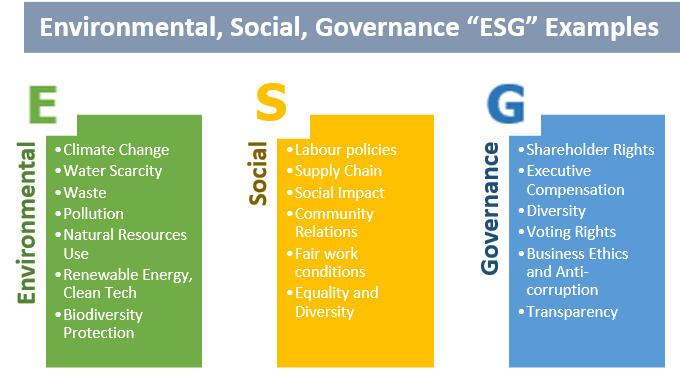The Impact of Sustainability on Brand Engagement: How Eco-Conscious Consumers Influence Brand Loyalty
Meta Description: Explore how sustainability shapes brand engagement in today's eco-conscious market, influencing consumer loyalty and shaping sustainable business practices.
In the modern marketplace, the interplay between sustainability and brand engagement has become increasingly prominent. Consumers today are more aware than ever of the environmental implications of their purchases, and they are gravitating towards brands that align with their values. With 5 years of experience in SEO, I have helped over 20 companies optimize their digital footprint, and this crucial topic highlights the importance of understanding eco-conscious consumers and the influence they wield over brand loyalty.
Understanding the Shift Towards Sustainability
Sustainability is no longer just a buzzword; it has evolved into a core business strategy for many brands. According to a 2021 report by Deloitte, 63% of consumers changed their shopping habits based on sustainability or environmental concerns. This shift indicates a strong desire among consumers to engage with brands that prioritize environmental responsibility. Moreover, the sustainable retail market is projected to reach $150 billion by 2025, demonstrating a clear demand for sustainable products.
The rise of eco-conscious consumers reflects deeper societal trends where individuals want to feel good about the brands they endorse. They are increasingly prioritizing companies that provide transparency, ethical practices, and sustainable offerings. As a result, businesses must adapt, recognizing that sustainability is now a driving factor in consumer purchasing decisions.
The Eco-Conscious Consumer Demographics
Millennials and Gen Z lead the charge in eco-conscious spending, with a Nielsen report indicating that 73% of millennials are willing to pay more for sustainable products. This demographic is particularly driven by brands that actively demonstrate commitment to sustainability through their products and marketing efforts.
Engagement Through Digital Platforms
In an era of social media, the influence of eco-conscious consumers extends beyond their purchasing habits. Platforms like Instagram and Twitter become avenues for brand engagement, where consumers expect brands to share their sustainability efforts and engage in dialogue about environmental issues. Sprout Social reveals that 70% of consumers are more likely to trust brands that showcase sustainable practices online, emphasizing the importance of transparent communication.
Engaging with movements like #BuyLess and #TrashTag, eco-conscious consumers advocate for responsible consumption and environmental stewardship, often influencing their networks and driving brand engagement.
Successful Brands Leading the Way
Several companies have effectively integrated sustainability into their business models, showcasing how environmental responsibility can enhance brand loyalty:
Patagonia: Renowned for its commitment to environmental activism, Patagonia's "Worn Wear" program encourages customers to repair and reuse their products, promoting brand loyalty and community advocacy.
 Their transparent supply chain practices resonate with eco-conscious consumers, further solidifying their brand reputation.
Their transparent supply chain practices resonate with eco-conscious consumers, further solidifying their brand reputation.Unilever: The company’s Sustainable Living brands, which focus on sustainability, have outperformed their traditional lines, growing 69% faster than the rest of the business.
 This highlights the financial benefits of prioritizing sustainability in brand decision-making.
This highlights the financial benefits of prioritizing sustainability in brand decision-making.
These brands exemplify the powerful connection between strong sustainability initiatives and enhanced consumer loyalty.
The Financial Importance of Sustainability
The financial implications of sustainable practices are significant. As consumers increasingly prefer brands that act responsibly, investors are taking notice as well. According to a report by MSCI, ESG-based investments saw an influx of $71.1 billion in the U.S. in 2020 alone.  This trend emphasizes that corporations prioritizing sustainability are not only appealing to consumers but are also becoming more attractive to investors.
This trend emphasizes that corporations prioritizing sustainability are not only appealing to consumers but are also becoming more attractive to investors.
Corporate Responsibility and Consumer Expectations
As consumers demand that brands take a stand on social issues, including environmental protection, companies must respond. The 2021 Cone/Porter Novelli Purpose Study revealed that 76% of consumers expect brands to engage in social issues. Brands that respond proactively through corporate sustainability efforts build stronger relationships with consumers, enhancing brand loyalty.
Creating Actionable Brand Strategies
For brands looking to engage eco-conscious consumers, several strategies can be adopted:
Transparent Supply Chains: Sharing details about sourcing and production practices can foster consumer trust.
Eco-Friendly Products: Investing in renewable materials or transitioning product lines to sustainable alternatives can draw the interest of eco-conscious shoppers.
Engagement in Local Initiatives: Participating in community-based environmental programs and supporting initiatives that champion sustainability demonstrate genuine commitment to corporate responsibility.
Encouraging Ethical Consumerism
For consumers looking to assess a brand's commitment to sustainability, there are ways to evaluate claims:
Look for Certifications: Third-party certifications like Fair Trade or B Corp can provide assurance of a brand's ethical practices.
Read Sustainability Reports: Brands that produce detailed reports on their sustainability efforts often demonstrate a commitment to transparency.
Navigating Regulations and Policies
Recent regulations are also shaping the market landscape. Initiatives like the EU’s Green Deal and California’s Climate Disclosure Requirements illustrate the government's push toward sustainability in business practices. Companies aligning with these regulations not only enhance their brand image but also minimize risks associated with compliance.
Fostering Community and Continued Dialogue
The intersection of sustainability and brand engagement is fostering a dynamic community discussion among consumers, businesses, and policymakers. NGOs, nonprofits, and regulatory bodies are crucial players in promoting ethical practices and sustainability in the marketplace.
By engaging in dialogue around eco-conscious consumerism, this blog aims to inform and inspire responsible business practices while encouraging consumers to make informed choices.
Conclusion: A Call to Action for Brands and Consumers
Sustainability's impact on brand engagement represents a paradigm shift in how businesses operate and connect with their customers. By embracing sustainable practices and centering eco-conscious consumer preferences, brands can enhance loyalty and performance. For consumers, understanding their role in promoting sustainability can amplify their purchasing power.
As both consumers and businesses navigate this evolving landscape, it is essential to foster habits that contribute to a sustainable future. Join in the conversation, explore related content, and commit to making informed, responsible choices that resonate with your values. Embrace sustainability, and watch as it transforms not just brands but the entire marketplace.
